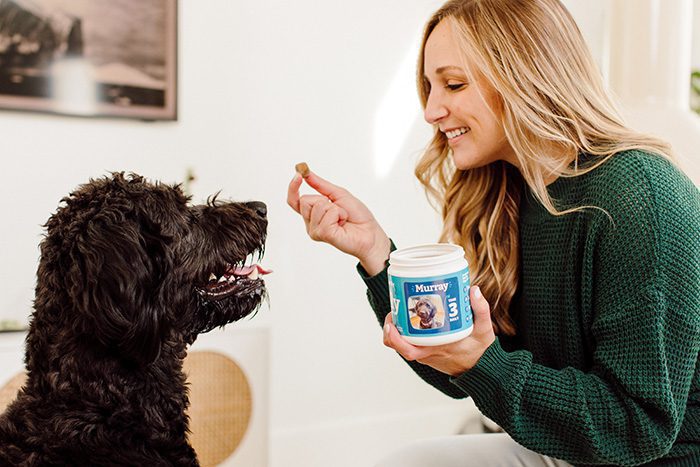When it comes to Dog Training AI vs Conventional Methods, there isn’t a universal winner. AI delivers data‑driven personalization and instant feedback, while traditional techniques provide proven, relationship‑building fundamentals. The best choice hinges on your dog’s temperament, your training goals, and how much time you can invest.
Understanding Dog Training AI vs Conventional Methods
Both sides of the debate aim to teach dogs basic obedience, solve behavior problems, and strengthen the human‑canine bond. The key difference lies in how the instruction is delivered and who (or what) interprets the dog’s response.
- Dog Training AI
- Uses sensors, cameras, and algorithms to analyze body language and vocal cues.
- Delivers real‑time prompts via apps, wearables, or smart speakers.
- Stores performance data for progressive adjustments.
- Conventional Methods
- Rely on human trainers using voice, hand signals, clickers, and treats.
- Emphasize consistency, timing, and the trainer‑dog relationship.
- Adapt on the fly based on the trainer’s intuition and experience.
Understanding this contrast helps you decide which approach aligns with your lifestyle and your dog’s learning style.
Subscribe to a FREE course on housetraining puppies and dogs.

How Dog Training AI Works
AI training tools combine four core components: data collection, pattern recognition, feedback delivery, and continuous improvement.
- Data Collection
- Wearable collars monitor heart rate, temperature, and activity.
- Cameras capture posture, eye contact, and tail movement.
- Pattern Recognition
- Machine‑learning models classify stress signals (e.g., elevated cortisol‑linked heart rate).
- Natural‑language processing interprets bark frequency and tone.
- Feedback Delivery
- A gentle vibration, a spoken cue, or a visual LED cue signals the desired behavior.
- Real‑time adjustments keep the dog in the “sweet spot” of learning—neither bored nor overwhelmed.
- Continuous Improvement
- The system logs each session, identifies trends, and suggests new exercises.
- Owners receive weekly progress reports with actionable tips.
The result is a data‑rich loop that can fine‑tune training plans faster than most humans can manually track. That can fine‑tune training plans faster than most humans can manually track.
Conventional Training Techniques
Traditional dog training has evolved from dominance‑based methods to science‑backed positive reinforcement. The most common conventional tools include:
- Positive Reinforcement – Rewarding desired actions with treats, praise, or play.
- Clicker Training – Pairing a distinct click sound with a reward to mark exact moments of correct behavior.
- Model‑Rival Training – Using a “demonstrator” dog to show the right response while the pupil watches.
- Operant Conditioning – Applying consistent consequences for both correct and incorrect actions.

Veterinary behaviorists endorse these methods because they reduce stress hormones (cortisol) and strengthen the oxytocin‑driven bond between owner and dog. Over centuries, these techniques have proven effective across breeds, ages, and temperaments.
Subscribe to a FREE course on housebreaking a puppy.
Effectiveness: Learning Speed and Retention
When we compare Dog Training AI vs Conventional Methods in terms of how quickly dogs learn and retain commands, several patterns emerge.
| Metric | Dog Training AI | Conventional Methods |
|---|---|---|
| Initial acquisition time | 1–2 weeks for basic commands (data‑driven prompts) | High when the owner consistently practices |
| Long‑term retention | High when data feedback reinforces spaced repetition | The manual may be delayed by human perception |
| Error correction | Immediate, automated cue adjustments | Manual, may be delayed by human perception |
| Generalization to new environments | Strong if sensors capture varied contexts | Variable; depends on trainer’s exposure strategies |
In practice, AI can shave days off the learning curve for simple tasks, but complex behavioral issues (e.g., severe anxiety) often still require the nuanced empathy of a seasoned trainer.
Personalization: Tailoring to Individual Dogs
Personalization is the crown jewel of Dog Training AI vs Conventional Methods. Here’s how each side customizes instruction.
- AI‑Based Personalization
- Adjusts difficulty based on real‑time stress markers.
- Recommends specific cue modalities (vibration vs voice) according to the dog’s sensory preferences.
- Generates a unique “learning profile” that evolves with each session.
- Human‑Driven Personalization
- Reads subtle body language cues that machines may miss (e.g., micro‑shifts in ear position).
- Modifies reward types based on the dog’s motivation (food vs play vs affection).
- Incorporates the owner’s voice tone, which many dogs recognize as a comfort signal.
A hybrid approach often yields the most precise customization: AI provides quantitative data while the trainer adds qualitative insight.
Cost and Accessibility: Investing in Your Dog’s Education
Budget considerations frequently tip the scales in the Dog Training AI vs Conventional Methods debate.
| Factor | Dog Training AI | Conventional Methods |
|---|---|---|
| Upfront cost | $199–$499 for smart collar + app subscription | $50–$150 for clickers, treats, books |
| Ongoing fees | $10–$30 monthly for cloud analytics | $0–$50 per group class session |
| Accessibility | Requires smartphone, Wi‑Fi, and a tech‑savvy owner | Available in community parks, community colleges, and online videos |
| Scalability | One device can train multiple dogs (with profile switches) | Each dog often needs separate class time |
While AI systems can feel pricey initially, they may pay off for owners who prefer at‑home training and want detailed progress tracking. Conventional classes usually have lower entry barriers but may involve travel time and scheduling constraints.
Subscribe to a FREE course on potty training a dog.

Safety and Welfare Considerations
Training should never compromise a dog’s physical or emotional health. Here’s a safety snapshot for Dog Training AI vs Conventional Methods.
- AI Safety
- Sensors must be non‑invasive and fit comfortably.
- Feedback strength (vibration, sound) is calibrated to avoid startle reflexes.
- Data‑driven alerts can warn owners of escalating stress (e.g., rapid heart‑rate spikes).
- Conventional Safety
- Human trainers can instantly stop a session if the dog shows signs of fear or aggression.
- Physical tools (e.g., harnesses) are vetted for ergonomic fit.
- Positive reinforcement eliminates the need for punitive measures, decreasing the risk of anxiety.
Both methods benefit from a veterinarian’s baseline health check to ensure no underlying conditions could be aggravated during training.
Owner Involvement and Bonding
The human‑dog relationship is the foundation of any successful program. How does Dog Training AI vs Conventional Methods affect owner involvement?
- AI‑Centric Training
- Encourages owners to monitor dashboards rather than be physically present for every cue.
- It can create a passive learning environment, which some owners feel reduces bonding time.
- However, reviewing progress together often sparks conversations about behavior, strengthening mutual understanding.
- Human‑Led Training
- Requires owners to deliver cues, rewards, and corrections in real time, facilitating eye contact and voice familiarity.
- Provides ample opportunities for positive reinforcement that builds trust.
- It may be more time‑intensive, but many owners view the involvement as a rewarding daily ritual.
Research shows that dogs trained primarily through human interaction tend to display higher oxytocin levels, a hormone linked to social bonding.
Data Privacy and Ethical Concerns
AI platforms collect a wealth of data—location, activity logs, health metrics. When evaluating Dog Training AI vs Conventional Methods, consider these ethical angles.
- Data Ownership
- Most apps claim ownership of the raw data while offering users a copy.
- Look for transparent privacy policies that explicitly state how data is stored and shared.
- Third‑Party Access
- Some services partner with pet‑health insurers or marketing firms.
- Verify whether you can opt out of data sharing for non‑essential purposes.
- Algorithmic Bias
- AI models trained on limited breed data may misinterpret signals for less‑studied breeds.
- Complement AI insights with a professional’s opinion to avoid misdiagnosing behavior.
By staying informed, owners can reap AI’s benefits while safeguarding their dog’s privacy.n reap AI’s benefits while safeguarding their dog’s privacy.
Scalability: From One Pup to an Entire Pack
If you’re a professional trainer or run a multi‑dog household, scalability matters. Here’s a breakdown of Dog Training AI vs Conventional Methods in larger settings.
- AI Scalability
- A single cloud‑based platform can manage dozens of canine profiles simultaneously.
- Automated session scheduling reduces administrative overhead.
- Real‑time analytics allow trainers to spot trends across a group (e.g., common stress triggers).
- Conventional Scalability
- Group classes foster social learning, but each dog still requires individual attention from the instructor.
- Physical space limits the number of participants per session.
- Scaling up often means hiring more trainers, which increases cost.
For businesses aiming to expand, AI offers a technology‑driven shortcut, whereas traditional methods rely on human capital.
Pros and Cons: Dog Training AI vs Conventional Methods
Below is a concise table that captures the strengths and weaknesses of each approach.
| Aspect | Dog Training AI | Conventional Methods |
|---|---|---|
| Pros | • Instant feedback • Data‑driven personalization • Remote monitoring • Scalable for multiple dogs | First‑time owners, dogs with severe anxiety, owners who enjoy hands‑on interaction, and budget‑conscious households |
| Cons | • Higher upfront cost • Requires internet & device upkeep • Potential data‑privacy concerns • May lack nuance for complex emotions | • Time‑intensive for owners • Dependent on trainer skill level • Inconsistent feedback if not well‑structured • Limited objective progress tracking |
| Best For | Tech‑savvy owners, busy professionals, multi‑dog households, data‑curious trainers | First‑time owners, dogs with severe anxiety, owners who enjoy hands‑on interaction, budget‑conscious households |
The table illustrates that the “better” choice isn’t absolute; it aligns with personal priorities and canine needs.
Subscribe to this FREE dog grooming mini-course

Real‑World Case Studies
The Urban Apartment Pup
- Dog: 2‑year‑old French Bulldog, high energy.
- Goal: Teach “stay” and “quiet” to avoid neighbor complaints.
- Method: Used a smart collar with a vibration cue; AI adjusted cue intensity based on heart‑rate spikes.
- Result: “Stay” mastered in 10 days; “quiet” reduced barking by 70% within 3 weeks. The owner praised the convenient data dashboard that fit a cramped schedule.
The Rescue with Separation Anxiety
- Dog: 4‑year‑old mixed‑breed rescue, previously in a shelter.
- Goal: Reduce destructive behavior when left alone.
- Method: Traditional positive‑reinforcement sessions at a local behavior clinic, plus daily short clicker drills by the owner.
- Result: After 8 weeks, destructive chewing dropped by 60%, and cortisol levels (via vet‑tested saliva test) fell significantly. The owner reported a deeper emotional bond and improved confidence in handling the dog.
The Rural Herding Dog
- Dog: 3‑year‑old Border Collie on a farm.
- Goal: Teach advanced herd‑control commands.
- Method: Hybrid approach – AI‑driven GPS‑tracking to monitor herd patterns, combined with human‑led reward‑based cues.
- Result: Herding efficiency increased by 15%, and the dog responded reliably to both AI prompts and the farmer’s voice commands.
These examples demonstrate that the optimal solution often blends technology with human expertise, especially when addressing diverse environments and behavioral challenges.
Future Trends: Merging AI with Traditional Training
The next wave of Dog Training AI vs Conventional Methods will likely be less about competition and more about collaboration.
- Smart Wearables + Human Coaching
- Imagine a collar that flags stress while a trainer modifies the cue tone on the spot.
- Augmented Reality (AR) Guidance
- Owners could wear AR glasses that overlay visual prompts, while still delivering verbal praise.
- Open‑Source Behavior Datasets
- Communities of trainers could contribute annotated video data, improving AI model accuracy for rare breeds.
- Veterinary‑Integrated Platforms
- AI could alert vets to abnormal activity patterns that hint at health concerns, merging training with preventive care.
These innovations promise a more holistic approach, where data enhances empathy rather than replaces it.c approach, where data enhances empathy rather than replaces it.
How to Choose the Right Approach for Your Dog
- Assess Your Dog’s Personality
- Dog Training AI vs Conventional Methods works best when matched to the dog’s sensory preferences and stress tolerance. - Consider Your Lifestyle
- If you travel often or have limited training windows, AI’s flexibility may be appealing.
- If you enjoy hands‑on interaction and have time for daily sessions, conventional techniques may feel more rewarding.
- Set Clear Goals
- For basic obedience, a smart app can be sufficient.
- For complex behavioral issues (e.g., aggression), a qualified trainer’s insight is essential.
- Budget Evaluation
- Calculate the total cost of ownership for AI (device + subscription) versus ongoing class fees.
- Trial Period
- Many AI platforms offer a 30‑day free trial; use it alongside a short‑term local class to compare outcomes directly.
By weighing these factors, you can make an informed decision that blends effectiveness, safety, and fun for both you and your dog.
FAQs
Can Dog Training AI replace a professional trainer?
No. AI provides data and prompts, but a professional adds empathy, nuanced judgment, and the ability to address complex emotional issues that algorithms may miss.
Are smart collars safe for my dog’s health?
When used as directed, most smart collars are non‑invasive and made of hypoallergenic materials. Always check fit and monitor for skin irritation.
How long does it take for a dog to respond to AI cues?
Basic commands often take 1–2 weeks with consistent AI feedback, though results vary based on breed, age, and previous training history.
Do I need a high‑speed internet connection for AI training?
Most apps sync data when a connection is available, but they can operate offline for short sessions. A stable Wi‑Fi network ensures real‑time updates.
Is my dog’s data shared with third parties?
Reputable platforms disclose privacy policies; you can usually opt out of data sharing for marketing. Review each service’s terms before signing up.
Conclusion
In the ongoing debate of Dog Training AI vs Conventional Methods, the answer isn’t a simple “yes” or “no.” AI excels at delivering instant, data‑driven feedback and scaling across multiple dogs, while traditional training shines in building deep emotional bonds and handling nuanced behaviors.
By evaluating your dog’s temperament, your schedule, and your budget, you can choose—or even combine—the approach that offers the most effective, safe, and enjoyable learning experience for both you and your canine companion.
Remember, the ultimate goal is a happy, well‑behaved dog, and the best method is the one that consistently supports that partnership.






